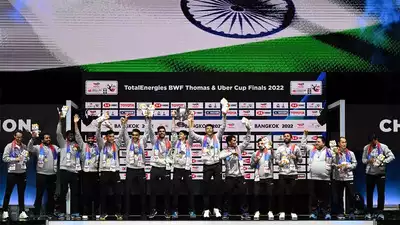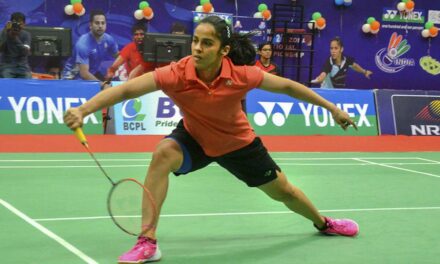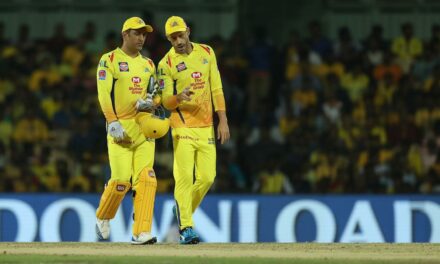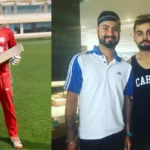
Indian player Shardul Thakur: Lord of tall-talking things
Nowadays, Shardul Thakur lives in a world of happy memes and hashtags. This is a place where marketing executives are desperate for their stars to be, and often try to come up with an image to make this possible.
With Thakur, the fans have organically hooked on to that intangible part of his personality. In #LordThakur’s fandom universe, his confidence with the bat and the ability to conjure a wicket early in his spells seems to be the most attractive traits. The reality not only matches up to the perception, but amplifies it further.
On the fourth evening of the Oval Test, Thakur remembers a light-hearted chat with his IPL teammate Sam Curran. “He said the wicket is flat and we will score 100 runs without losing any wicket,” Thakur recalls
Some might not know how to embrace the attention but Shardul does. With dollops of common sense. “Somewhere, I feel I haven’t achieved anything yet, I don’t want to be satisfied. I have seen days where the same social media has cursed my presence in the team. Now I am enjoying these memes. It shows how much love I am getting from all quarters.”
The moniker Lord Thakur amuses him but he hasn’t forgotten the bigger picture. “I don’t mind such names. But I want people to remember me as the guy who created an impact in the game and won the game. That’s what matters to me down the line.”
Stories have been told about how he didn’t pass on the message from team management to R Ashwin and Hanuma Vihari when the pair was fighting to save the Adelaide Test. He thought it would confuse them. Stories have also been told about how he walks up to Dhoni (in IPL) or Kohli and speaks his mind on the field and in meetings.
He claims his straightforwardness comes from his upbringing in Palghar, in the outskirts of Mumbai. “I have come across various people till date, so I don’t think I need to change myself and talk diplomatically. I just talk straight and I don’t find any offence in it. There is no point talking behind your back. Whatever is in my heart I tell it straight to the captain or team management, because only then I will find a solution.”
The people who know him well say his stubbornness, akad as they say in Hindi, is what drives him to be confident and pave his own path. “He has akad, never gives up,” says his close friend Atif Attarwala, a Mumbai pacer. ““He loves to compete, He didn’t come from the city, he came from a village. So he liked to take risks often, he wasn’t like those modern boys of Mumbai, who will think twice before taking any action. Shardul was like, aane de, dekhta hoon types. (Bring it on, I shall face it) He always wanted to be one step ahead of situations, there was almost a madness in him. Look at the way he faced Anderson, it was because of his confidence,” Attarwala says.
Thakur knows how he got to this stage, and now, seems to know how to stay here. Nothing has happened by chance, he says, and details the conscious effort behind the seemingly instinctive batting.
“When I injured my ankle two years ago, I decided that I need to take my batting seriously. I had the ability in me and wanted to contribute. I told myself, kuch bhi ho jaye, batting mein acha karna hi padega. (Whatever happens, I have to bat well). In the past, there were opportunities but somehow I couldn’t leave any impact. I told myself this can’t continue.”
So he called up Indian team’s throw-down specialists Raghu and Nuwan, the Sri Lankan, who can hurl the ball down at insane speeds. “Sometimes it could go over 150 kmph plus”. Initially, Thakur couldn’t handle it. “Initially, I wasn’t able to play them. I told myself that lets try to have good footwork and as I kept facing them, my batting improved slowly. I got used to the pace.”
He took onboard inputs from other quarters. Like MS Dhoni, at the IPL. “Once Mahi bhai [Dhoni] told me in his room when I was holding his bat, that my batting grip was too high, that I need to hold it a bit below so that I can get better control over my shots. Now I hold my bat, bit lower, it helps me in playing my shots.” He also cites the encouragement given by Rohit Sharma and Virat Kohli. “They have kept on motivating me, saying whenever I bat, I should think the way batsmen think. That I have that ability.”
The way he talks about his breakout knock in Brisbane where he knocked the living daylights out of a top-quality Australian attack to swing the game India’s way reveals his character.
“If anyone had felt my Brisbane innings was a mere fluke, then best wishes to them! I know I can bat. It was just a matter of application.” Was there any pressure to perform post Brisbane? He says it didn’t change him but changed others. “Now there is more confidence in me. I get batting regularly in the nets; the team management has trust in me that I will contribute with the bat. Whatever runs I have scored so far, there has been a process which I have followed; it’s not because of coincidence or any luck.”
No superstitions, either. “I’m not that kind of person, who will wear pads on the left leg first and will sit in a specific place in the bus or dressing room. I have more trust in my game than all these superstitious activities!”
He has grabbed the chances that came his way not just now but even in his formative years. It’s how he became a fast bowler too. On a whim. In a U-13 tournament, there was a paucity of fast bowlers in his team. “We were studying in a Marathi-medium school and our Diwali vacation hadn’t started yet. And all our fast bowlers couldn’t make it to the game. There was no second fast bowler. I said, ‘chalo, I will bowl fast. Since then, I became a fast bowler. Until then, I just used to bat and bowl some spin.”
Even Lord Thakur gets nervous, at times, though. Like when bumping into Sunil Gavaskar at airports. “I do get nervous when I meet senior players while travelling. Like when I see Sunil Gavaskar sir at the airport, I will get nervous to greet and talk to him.”
The feeling is momentary, though, for it fades out in a couple of minutes. Just as it did in Australia during batting. “My heart was pumping when I walked out in Brisbane. I have never played such a kind of speed bowling in my life. Pat Cummins and Mitchell Starc were bowling at a great speed, my heart was pumping. But as I spent more time at the crease, the feeling went away, just like it does when speaking to senior players like Gavaskar sir” he recalls.
The matter-of-fact logic pops up even when he talks about moments in the middle when things get heated up. Like it did with James Anderson, who snapped after being subjected to a bumper barrage from Jasprit Bumrah in the Lord’s Test.
“Why shouldn’t we bowl body lines to them? We are not playing to please anyone, we are playing to win. Our tailenders also face bouncers. In Australia, Natarajan was bowled by Mitchell Stars and Pat Cummins despite knowing that this guy hasn’t batted much even in first-class cricket. So now when our opponents’ tailenders come to bat, why shouldn’t we bowl bouncers to them?”
As for Anderson’s reactions, Thakur has this to say. “I was later told that Anderson told something to Bumrah which he shouldn’t have, I was told they (England team) abused Bumrah. Those words cannot be said in public, so everyone got charged up after this.”
Thakur then sums up his and the Indian team’s philosophy. “We respect everyone but we are not scared of any opponent in the world. We are not shy of expressing ourselves. The name of the team doesn’t matter to us anymore. We might be playing Australia, England, New Zealand, South Africa and we will express ourselves. Win and loss are part of the game but how we can take our winning percentage ahead, that is important. Everyone in the team is determined to win the game. Everyone is ready to put their bodies on the line.” His body, the world now knows, will be one of the first in the way.

















